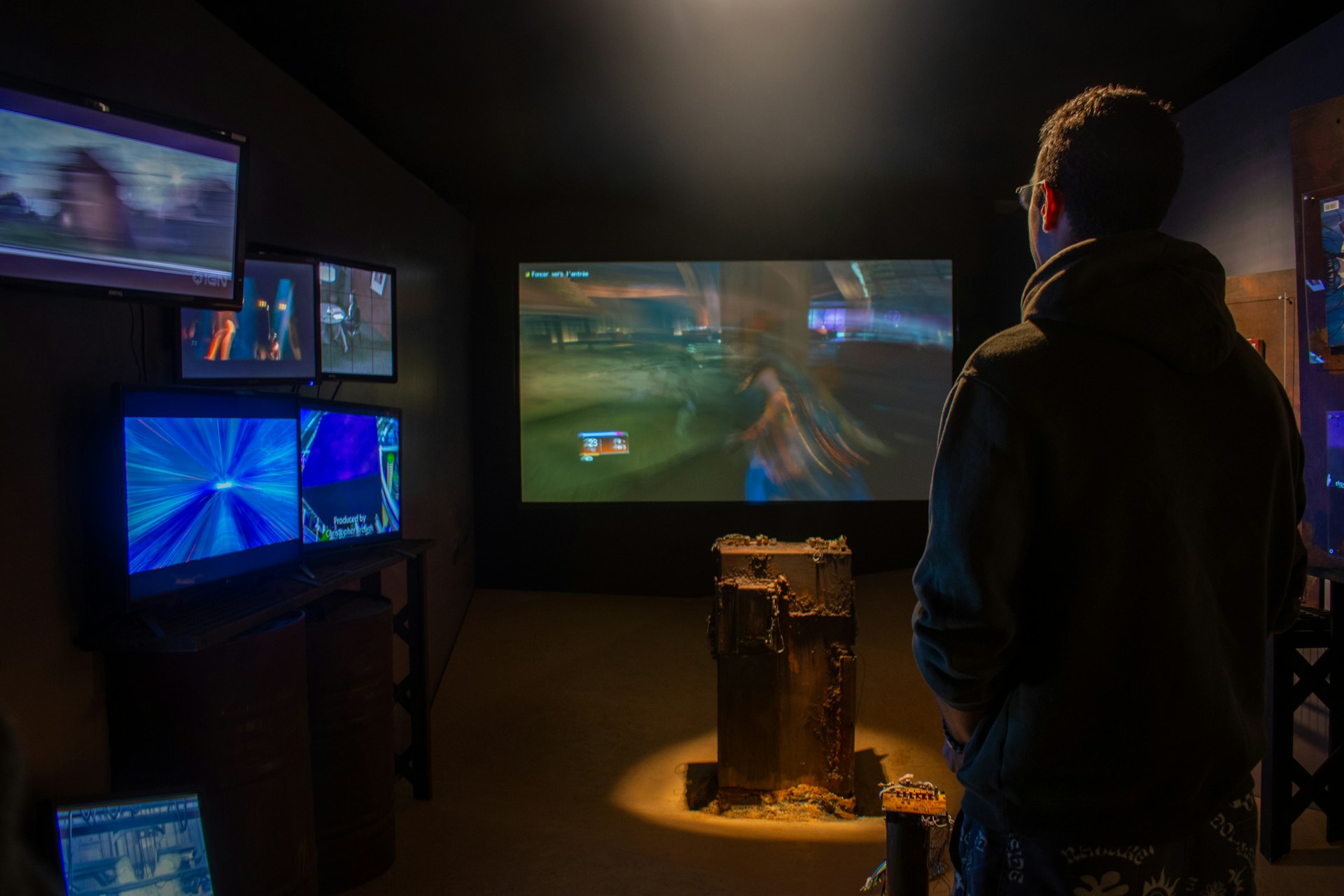Unleashing Creativity: Essential Open Source Tools for Indie Game Developers

Photo by Gor Davtyan on Unsplash
Introduction
Indie game development thrives on creativity, flexibility, and community-driven support. Open source tools are at the heart of this movement, providing developers with accessible, cost-effective resources to build, polish, and release new games. This article explores the most impactful open source tools available today, offers step-by-step guidance for getting started, and addresses practical challenges and solutions in modern indie game development.
Why Open Source Tools Matter for Indie Developers
Open source tools empower indie developers by eliminating costly licensing fees, fostering collaborative problem-solving, and enabling customization to fit unique project needs. Unlike proprietary engines, open source platforms allow you to modify code, share improvements with the community, and retain full control over your creations. This democratizes access to game development and encourages innovation across genres and platforms. [1]
Popular Open Source Game Engines
Choosing the right game engine is a foundational decision for any project. Several open source engines have earned strong reputations for reliability, performance, and community support. Below are some of the most widely used:
Godot Engine
Godot Engine is a versatile, MIT-licensed platform for creating 2D and 3D games. It offers a user-friendly drag-and-drop editor, a powerful scripting language (GDScript), and robust export options for desktop, mobile, and web platforms. Its thriving community provides extensive documentation, tutorials, and plugins. To start, download Godot from the official website, explore the built-in demos, and join community forums for support and networking. [1]

Photo by kuaileqie RE on Unsplash
Phaser
Phaser is a fast, open source HTML5 framework ideal for 2D web games. With a comprehensive API, real-time rendering, and cross-platform deployment, Phaser is particularly suited for browser-based projects. The official Phaser website offers downloads, guides, and a vibrant community forum. Beginners can use Phaser Editor to visually design games without extensive coding. [4]
Cocos2d-x
Cocos2d-x is a mature, C++-based framework supporting 2D game development for mobile, desktop, and web. Its modular structure and active community make it a reliable choice for cross-platform games. To get started, visit the Cocos2d-x site, download the SDK, and review official learning materials. [1]
MonoGame
MonoGame is an open source successor to Microsoft’s XNA, enabling C# development for Windows, Linux, Android, iOS, and more. It is suited for developers with coding experience looking for flexibility and performance. Resources and installation guides can be found via the MonoGame community and documentation portals. [1]
Open Source Art and Animation Suites
High-quality art is crucial for game appeal. Open source graphic and animation tools are now on par with many commercial products, offering advanced capabilities at no cost:
Blender
Blender is a professional-grade 3D modeling, animation, and rendering suite. It is used for everything from character modeling to cinematic trailers. Blender’s open source nature ensures continual updates and a vast library of plugins and tutorials. To learn, access the Blender Foundation’s official site for downloads, user guides, and video courses. [2]
Krita and GIMP
Krita specializes in digital painting and concept art, while GIMP provides comprehensive raster image editing. Both are open source, cross-platform, and supported by large creative communities. Download from their official portals, and explore user forums for tips and workflow suggestions. [2]
Inkscape
For vector graphics, Inkscape is a leading open source tool. It excels at creating scalable sprites, UI assets, and game icons. Inkscape’s learning curve is gentle, and its documentation is thorough. Beginners should start with the official tutorials and experiment with sample projects. [2]
Open Source Audio Tools
Audio brings games to life. Open source software allows indie creators to compose, edit, and implement music and sound effects without prohibitive costs.
Audacity
Audacity is a widely used open source audio editor for recording, mixing, and post-processing game audio. It supports multiple file formats and plugins, making it suitable for everything from voice-overs to sound effects. Download Audacity from the official site, and check their wiki for project-based audio tutorials. [2]
LMMS (Linux MultiMedia Studio)
LMMS is an open source digital audio workstation for composing and producing music. It supports MIDI keyboards, VST plugins, and a variety of sample packs. Visit the LMMS website for downloadable resources, user manuals, and a community forum.
Workflow Integration: Step-by-Step Implementation
Successfully integrating open source tools into your workflow involves careful planning and experimentation. Here are actionable steps for indie developers:
- Define Your Project Requirements: Determine whether you need 2D, 3D, or hybrid capabilities, and list required features such as physics, animation, or multiplayer support.
- Select Core Tools: Choose a primary engine (e.g., Godot, Phaser), an art suite (e.g., Blender, Krita), and audio software (e.g., Audacity). Ensure cross-compatibility by reviewing file format support.
- Download and Install: Use official websites or community-endorsed repositories to obtain the latest, stable versions. Avoid unofficial builds to reduce compatibility risks.
- Explore Tutorials: Most open source projects maintain extensive documentation and user-contributed guides. Begin with beginner-friendly tutorials before moving to advanced topics.
- Prototype Quickly: Use templates, sample projects, and asset libraries to create a basic game prototype. Iterate and test core mechanics before investing in full-scale production.
- Engage with Communities: Join forums, chat groups, and social channels dedicated to your tools of choice. Community support often resolves issues faster than searching alone and can lead to collaboration opportunities.
- Iterate and Polish: As development progresses, integrate additional plugins, refine assets, and optimize performance. Open source tools often have modular architectures, allowing for flexible expansion as your project grows.
Challenges and Solutions in Open Source Game Development
While open source tools offer flexibility, they can present challenges such as limited official support, evolving features, or compatibility issues. To overcome these hurdles:
- Stay Updated: Regularly check for software updates and patch notes to avoid security vulnerabilities or deprecated features.
- Back Up Frequently: Use version control systems like Git to manage code, assets, and collaborative contributions. This minimizes data loss and streamlines rollback after errors.
- Document Your Workflow: Maintain detailed records of your development process, tool versions, and custom modifications. This simplifies troubleshooting and improves team onboarding.
- Seek Alternative Tools: If a chosen tool lacks essential features, investigate compatible alternatives or plugins. Open source communities often cross-collaborate, making it easier to mix and match solutions.
Case Study: An Indie Team’s Journey
Consider an indie team developing a 2D platformer. By using Godot for core development, Blender for character modeling, Krita for backgrounds, and Audacity for sound effects, they avoid licensing fees and retain full creative control. Community forums help troubleshoot bugs, and a Git repository ensures seamless collaboration. The resulting game, released across PC and mobile, showcases the power of open source collaboration and resourcefulness. [1]
Finding and Accessing Open Source Tools
To locate trustworthy open source resources, always use official project websites or reputable aggregators. For engines like Godot and Phaser, download only from their official sites. For art and music tools, verify that your source is recommended by the project’s core team or active community. If in doubt, search for tool names in combination with “official site” or consult well-known open source directories.
If you encounter obstacles or need guidance, consider searching for active developer forums, Discord servers, or Reddit communities related to your chosen tools. These platforms often provide real-time support, project showcases, and collaboration opportunities.
Conclusion
The open source ecosystem for indie game development is rich, diverse, and expanding rapidly. By leveraging powerful, community-driven tools for coding, art, and audio, indie creators can realize ambitious projects with minimal overhead. Start by defining your needs, selecting the right tools, and engaging with supportive networks to accelerate your journey from concept to launch. Remember, open source development is a collaborative adventure-embrace experimentation, continuous learning, and community contributions for the greatest success.



